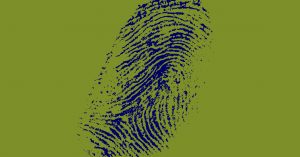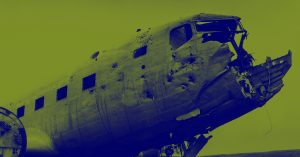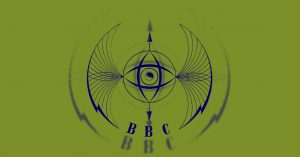
RMS Aquitania
Cunard sends the liner RMS Aquitania to be scrapped after 36 years in service
General election
The country goes to the polls. Labour's majority falls from 146 to 5.
Corby New Town
The village of Corby in Northamptonshire is designated as a New Town.
The Eagle
First edition of boys' magazine The Eagle.
Petrol rationing
Petrol rationing is abolished.
Sainsbury
The first purpose-built self-service supermarket in the UK is opened in Croydon by J S Sainsbury's.
Princess Anne
Princess Elizabeth and the Duke of Edinburgh have a daughter, their second child.
Korean war
British soldiers arrive in Korea as the communist north presses forward in the capitalist south.
Soap rationing
Soap rationing is abolished.
National Service
Conscription for 18-year-olds is extended from 18 months to 2 years because of the war in Korea.
House of Commons
The lower chamber of of Houses of Parliament is used for debates for the first time since it was reconstructed following destruction in the Blitz.
Stone of Scone
The Stone of Scone, used during the coronation of Scottish, later English and then British monarchs, is stolen from Westminster Abbey by Scottish nationalists.
Groundnuts
A scheme to grow cheap food in Tanganyika is cancelled after failing, having cost £36.5m.
Transatlantic flight
A Canberra travels from Northern Ireland to Newfoundland without refuelling, becoming the first jet to make the 4 hour 37 minute journey.
Stone of Scone
The Stone of Scone is found in Forfar.
Peak District
The Peak District becomes Britain's first National Park.
Resignations
Aneurin Bevan, Harold Wilson and John Freeman resign from the government in protest at the imposition of prescription charges.
Festival of Britain
King George VI and Queen Elizabeth open the Festival of Britain on a former bomb site on London's South Bank.
Espionage
Two British agents, Donald Mclean and Guy Burgess, defect to the Soviet Union.
Port Talbot
A giant steelworks is opened by the Iron and Steel Corporation in south Wales.
Health of the King
King George VI has part of his lung removed in an attempt to stop the spread of cancer.
Festival of Britain
The Festival of Britain officially ends. Its legacy includes the Festival Hall on the South Bank.
General election
The country goes to the polls. Labour win a majority of the votes, but the First Past the Post system hands the Conservatives a majority of 17 seats.
Suez
The Egyptian government tears up a 1936 treaty with the UK; Britain sends 6,000 soldiers to the canal zone.
Computers
LEO becomes the first computer to operate commercially, running the business needs of J Lyons, the bakers.
Health of the King
King George VI's Christmas Message is pre-recorded this year due to his ill-health. He can be heard struggling for breath.
UK/USA relations
Prime Minister Winston Churchill arrives in Washington for talks with President Harry S Truman.
TV detector vans
With an estimated 150,000 households having television sets but not paying the full licence, the General Post Office commissions vans which, they say, can detect the use of unlicenced TVs.
HM the King
King George VI dies aged 56. He is succeeded by his eldest daughter, who becomes Queen Elizabeth II. She rushes home from a visit to Kenya.
Funeral of the King
King George VI is interred at St George's Chapel in Windsor.
ID cards
The National Identity Card Scheme, introduced at the outbreak of the war, is abolished.
Atomic weapons
Winston Churchill admits that the UK possesses an atomic bomb.
Alan Turing
Computer scientist and war hero Alan Turing is convicted of gross indecency for being in a consensual relationship with another man. He is sentenced to be chemically castrated.
University of Southampton
A charter establishes the new University of Southampton, the first post-war university.
De Havilland Comet
The Comet, the world's first passenger jetliner, makes its maiden flight from London to Johannesburg.
London Trams
The last day of trams in London. They are to be replaced by supposedly more flexible bus services.
Charlie Chaplin
Film star and director Charlie Chaplin sails from the US to the UK. On the journey he is told he will not be allowed back into the US until an investigation is completed into whether he is a communist.
The Manchester Guardian
News appears on the front page of the Manchester Guardian for the first time, displacing advertisements to inside the newspaper.
Atomic weapons
Britain tests its first atomic bomb.
Tea rationing
Tea rationing, introduced during the war, is abolished.
Great Smog
A thick, choking smog decends upon London which will last for almost a week. Transport is made very difficult and 4,000 people will die of lung complaints.
Petrol brands
Branded petrol reappears at the pumps, the wartime system of pooling all petrol supplies being abandoned.
Sweets rationing
The rationing of sweets ends.
DNA
Watson and Crick, using work taken without her knowledge from Rosalind Franklin, announce they have discovered the structure of DNA: a double helix.
UK/Yugoslav relations
Josip Tito, communist dictator of Yugoslavia, becomes the first Eastern Bloc leader to visit the UK.
Queen Mary
Queen Mary, wife of King George V, mother of King George VI and grandmother of the new Queen Elizabeth, dies. She leaves specific instructions that any mourning for her must not interrupt plans for her granddaughter's coronation.
HMY Britannia
The royal yacht Britannia is launched on the Clyde by the Queen.
Sir Winston Churchill
Prime Minister Winston Churchill is knighted.
The Coronation
HM Queen Elizabeth II is crowned at Westminster Abbey.
Sir Winston Churchill
The Prime Minister suffers a stroke. The country is not informed.
Sugar rationing
Sugar comes off the ration.
The Samaritans
The Samaritans, a telephone helpline for people with depression, opens. It is now on 116 123.
Buggery
After being seen kissing other men at a party, Lord Montagu, Peter Wildeblood and Michael Pitt-Rivers are sent to prison.
Nye Bevan
Aneurin Bevan leaves the Shadow Cabinet in protest at Labour not opposing plans for West Germany to be allowed to rearm due to the Cold War.
IRA
The Irish Republican Army raids a barracks in Armagh to steal weapons, presaging a return to an active presence in Northern Ireland
Solar eclipse
The first near-total eclipse of the sun in 27 years.
Meat rationing
Meat rationing is abolished, bringing to an end the World War II system except for some small schemes for children's welfare products.
Obscene Publications
Donald McGill, who makes saucy cartoon postcards, is found guilty of breaking the 1857 Obscene Publications Act. He is fined £75 with £25 costs and the publication of such cartoons all but cease. The government will revise the Act to exclude such jokes later in the decade.
Wolfenden Committee
The Wolfenden Committee, examining the laws on prostitution and homosexuality (legally roughly the same) in England and Wales, convenes.
Haile Selassie
State visit of the Emperor of Ethiopia to the UK.
138 Squadron
The RAF forms its first atomic weapons deployment squadron at RAF Gaydon.
The Big Freeze
Drifting snow and freezing temperatures block roads and British Railways lines. The RAF is asked to deliver food and medicines to remote areas.
Sir Winston Churchill
In poor health following his stroke, the Prime Minister resigns.
Sir Anthony Eden
The Queen sends for Foriegn Secretary and Deputy Prime Minister Anthony Eden to succeed Churchill as PM.
Norfolk dustbowl
Low gales strip the topsoil from agricultural land in Norfolk.
General election
The country goes to the polls. The Conservatives increase their majority from to about 31 seats.
ASLEF strike
A strike by locomotive drivers and firemen stops all British Railways services.
ASLEF strike
With rail freight and passenger traffic at a standstill, Anthony Eden institutes a state of emergency.
ASLEF strike
The rail strike ends in victory for the drivers and firemen.
Airfix
Airfix produce their first scale model aeroplane, that of a Spitfire.
Independent Television
The Independent Television Authority's commercial service begins on Channel 9 in London with a night of programmes jointly produced by weekday contractor Associated-Rediffusion and weekend provider Associated Broadcasting Company (later ATV after legal action from ABC Cinemas).
Fishfingers
Mass-produced fishfingers go on sale in the UK for the first time.
Princess Margaret
After months of speculation in the foreign press but silence in the UK papers, Princess Margaret, third in line for the throne, announces that she will not marry her divorced lover Peter Townsend.
Clement Attlee
Former Prime Minister Clement Attlee resigns as leader of the Labour Party.
Hugh Gaitskell
Hugh Gaitskell becomes leader of the Labour Party.
No parking
Double yellow lines are painted on the side of a road in Slough for the first time, indicating that vehicle parking is prohibited.
Karl Marx
A statue - a carved bust - is unveiled on the grave of Karl Marx in Highgate Cemetery. It is regularly vandalised.
Premium Bonds
The Chancellor, Harold Macmillan, makes his budget statement. The main headline is the introduction of government bonds that, rather than pay interest, will be entered into a monthly draw for prizes up to £1,000.
Smoking
The Ministry of Health dismisses calls for an anti-smoking campaign, saying that harm from tobacco is not proven.
The Gower
The first Area of Outstanding Natural Beauty is declared - the Gower peninsula in Wales.
Third Class
Third Class facilities on British Railways are renamed Second Class, the original Second Class having died out some years previously.
Clean Air Act
Restrictions on coal burning, domestic fires and industrial emissions are passed by parliament in reaction to th Great Smog.
Suez
Egypt announces the nationalistion of the Anglo-French owned Suez canal.
Fine dining
Berni Inn opens its first restaurant, in Bristol.
Transatlantic communications
The TAT-1 telephone cable between the UK and North America is inaugurated.
Calder Hall
The first nuclear reactor in the world to produce electricity for domestic use is opened by the Queen.
Suez
Israel invades Egypt, with the connivance of the British and French.
Suez
British and French troops invade Egypt to 'impose a ceasefire' - in reality to take back control of the canal. The Egyptians scuttle ships in the canal, blocking it for six months.
Suez
The Manchester Guardian, believing that the Prime Minister has lied over involvement in the Suez crisis, calls for his resignation.
Petrol rationing
Petrol rationing is reintroduced due to the Suez crisis.
IRA
The Irish Republican Army returns to operations in Northern Ireland after a long period of silence.
IRA
The government of Northern Ireland introduces internment in prison without trial for anyone suspected of being invloved with the Irish Republican Army.
Suez
Under pressure from the US, which had begun trashing the pound sterling and the franc internationally, and the UN, British and French soldiers withdraw from Egypt.
Sir Anthony Eden
In constant pain from a botched operation and off his face on benzedrine, Prime Minister Anthony Eden resigns in the wake of the Suez affair.
Harold Macmillan
The Queen summons Harold Macmillan to be her new Prime Minister.
Petrol rationing
Petrol rationing comes to an end after the Suez affair.
Premium Bonds
An electronic random-number generator, ERNIE, picks the first Premium Bond winners.
The Beatles
Schoolboys Paul McCartney and John Lennon meet at a church fête and strike up a friendship.
Never had it so good
PM Harold Macmillan tells a Conservative conference that "most of our people have never had it so good."
Bus strike
An eight-day strike by the Transport and General Workers Union stops provincial bus services.
Wolfenden Committee
The Wolfenden Committee report on laws surrounding prostitution and homosexuality is published, recommending that sex between men be partially decriminalised. The report is ignored for a decade.
Windscale
A fire at the nuclear reactor at Windscale spreads atomic contamination across the fields of Cumberland.
Queen
The royal message is made in front of a television camera for the first time.
Government resignations
The Chancellor of the Exchequer and two of his treasury ministers resign from the government after the Cabinet refuses to endorse their plans for large spending cuts.
Campaign for Nuclear Disarmament
CND is founded.
M1
Work begins on the M1 motorway that will eventually link London with Leeds.
Prince Charles
Charles, Duke of Cornwall, is made Prince of Wales by his mother the Queen.
Female peers
The introduction of non-heriditary life peerages allows Barbara Wootton to become the first woman eligible to be a member of the House of Lords in her own right.
UK/USSR relations
Harold Macmillan and Nikita Khrushchev meet in Moscow for talks.
Campaign for Nuclear Disarmament
20,000 people attend a CND rally in Trafalgar Square.
Postcodes
An experimental system of postcodes is introduced in Norwich by the GPO. The format is NOR 1AA.
Mini
The British Motor Corporation introduces its new low-cost car, the Mini.
About the author
Dr Russ J Graham is Transdiffusion's curator



